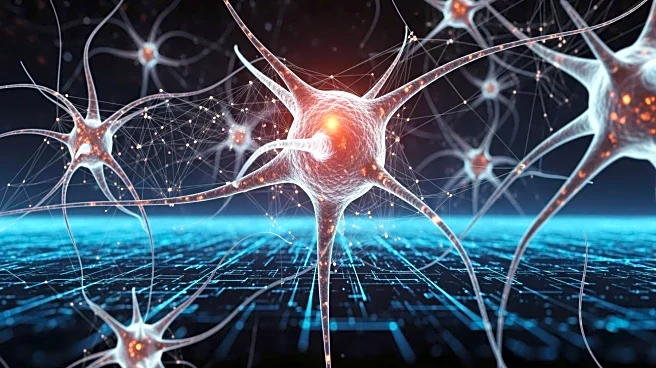What's Happening?
A comprehensive exploration of consciousness theories has been undertaken, revealing over 350 distinct perspectives on the nature of consciousness. These theories range from materialism, which posits that
only physical states are real, to idealism, where mental states are considered fundamental. The diversity of these theories impacts beliefs about free will, artificial intelligence, and life after death. The study, led by Robert Lawrence Kuhn, highlights the complexity of consciousness and its implications for understanding reality. The theories are categorized into ten broad groups, from physicalist to non-physicalist, and include dualism, monism, and panpsychism. This exploration aims to map the landscape of consciousness, offering insights into the fundamental nature of existence.
Why It's Important?
The exploration of consciousness theories is significant as it influences core beliefs about reality, free will, and the potential for artificial intelligence to achieve consciousness. Materialist theories suggest that consciousness is a product of physical processes, while idealist theories propose that consciousness is fundamental. These differing views affect how society approaches technological advancements, particularly in AI, and philosophical questions about human existence. Understanding consciousness is crucial for developing technologies that mimic human cognition and for addressing ethical considerations in AI development. The study provides a framework for future research and philosophical inquiry into the nature of consciousness.
What's Next?
The ongoing exploration of consciousness theories will continue to shape discussions in neuroscience, philosophy, and technology. As researchers delve deeper into these theories, they may uncover new insights into the relationship between consciousness and physical reality. This could lead to advancements in AI technology, potentially enabling machines to achieve a form of consciousness. Additionally, the study may influence philosophical debates about free will and the nature of existence, prompting further investigation into the implications of different consciousness theories. The landscape of consciousness will remain a dynamic field of study, with potential breakthroughs in understanding the mind and reality.
Beyond the Headlines
The study of consciousness theories raises ethical and philosophical questions about the nature of reality and human existence. It challenges traditional views of consciousness as merely a product of brain activity, suggesting that consciousness may be a fundamental aspect of the universe. This has implications for how society perceives free will, the possibility of life after death, and the role of AI in the future. The exploration of these theories encourages a broader understanding of consciousness, potentially leading to new ways of thinking about the mind and its connection to the physical world.










